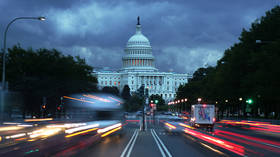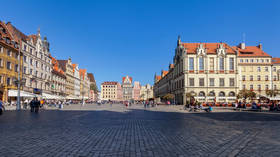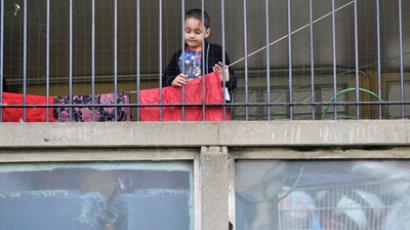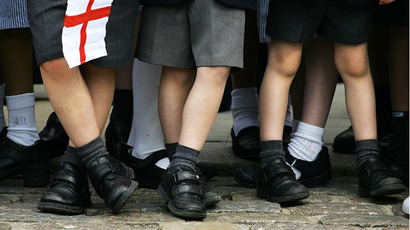‘Them and us:’ One in four children living in poverty in UK
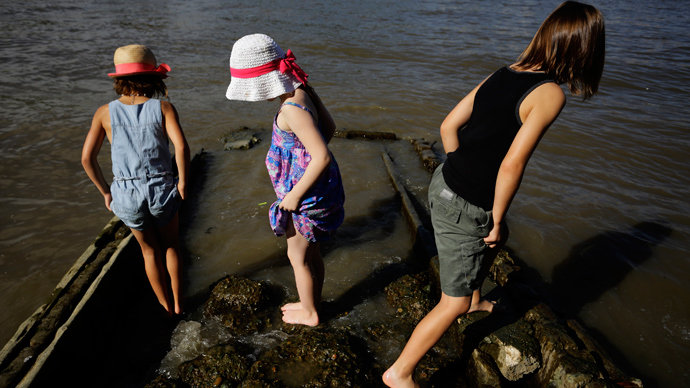
Despite government efforts childhood poverty continues to increase in the UK, with at least 3.5 million kids living in relative poverty, according to a new report, which is 1.5 million more than in the 1960s.
The ‘Greater Expectations’ report, seen by the Guardian, highlighted that in some ways the childhood poverty is now even worse than it used to be nearly fifty years ago.
The report will be released by the National Children's Bureau next week to mark the charity’s 50th anniversary. The main goal of the report is to “explore how inequality and social disadvantage continues to blight the lives of children and young people, nearly five decades after the original research report.”
Key figures from the report point out: The number of children in relative poverty had increased by 1.5 million since 1969; a child living in poverty is far more likely to be obese, suffer accidental injuries and are far less likely to do well in school and have access to parks and play areas.
The release will follow the National Children's Bureau ‘Born to Fail?’ report, which was published in 1973 and classified two million kids as living in poverty in the 1960s.
Report’s findings suggest that UK’s effort to battle childhood poverty had been falling short and “politicians need to be more ambitious”.
The report states that such statistics divide the country, which “creates a 'them and us' society with far greater tensions,” adding that "the riots of the summer of 2011 were a warning of how easily these tensions can spiral out of control.”

The other consequence of such a high level of childhood poverty is an economic one, as higher poverty adds a financial burden to the rest of the society, The Guardian quoted the report as saying.
"Quite simply, we cannot afford so many of the nation's future generation to be cut adrift, adding to the welfare bill and allowing desperately needed talents to be unfulfilled."
The report points to the difficulty of comparing data of today with that of 1969. But it insists that a “reasonable comparison” is provided, as the number of children in the UK (which is around 13 million) stayed mostly unchanged since then.
The poverty level increased by 1.5 million kids, which means that one in four children in the UK are now “classified as living in relative poverty”, states the report.
Children are considered to be living in relative poverty when their families’ income is below 60 percent of the median after housing costs have been included.
And the situation is likely to get worse argues ‘Great Expectations’. Fiscal Studies analysis estimated that new changes to the tax and benefits system will force 600,000 more children into poverty by 2015 and by 2020 the total number of kids living in poverty is predicted to rise to 4.7 million.
The National Children's Bureau ends the report with a warning: "The fact that the poverty and inequality experienced by our children remains just as prevalent today as it did nearly 50 years ago must not be ignored,” adding that “with cuts to services and welfare benefits now taking hold, those children living in low-income families are set to experience even greater hardship and the gap between them and others is set to grow even wider."





